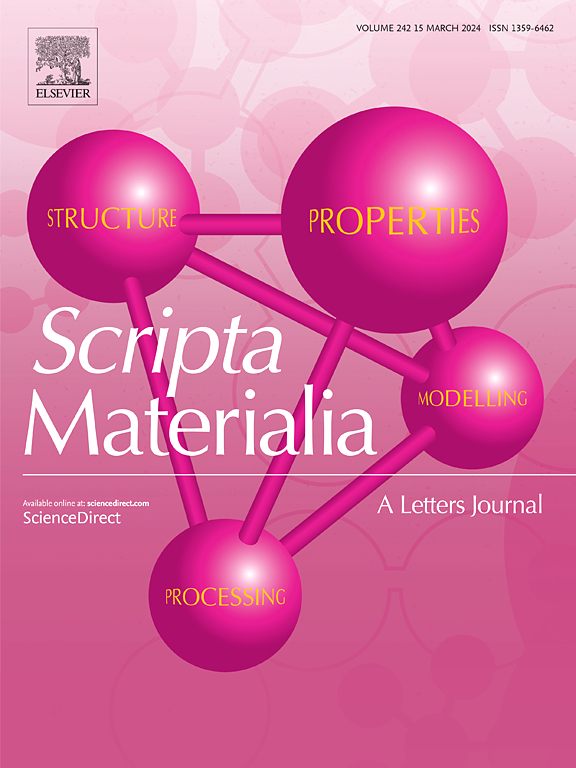加速发现低能量结构配置:一种集成第一性原理计算、蒙特卡罗采样和机器学习的计算方法
IF 5.3
2区 材料科学
Q2 MATERIALS SCIENCE, MULTIDISCIPLINARY
引用次数: 0
摘要
寻找最小能量配置(MECs)在物理、化学和材料科学等领域是必不可少的,因为它们代表了系统的最稳定状态。特别是,在被认为是候选pfm的多组分合金中识别这样的mec是关键,因为它决定了合金中最稳定的原子排列,直接影响其相稳定性、结构完整性和热机械性能。然而,由于搜索空间随着所考虑的原子数量呈指数增长,使用计算代价高昂的第一性原理DFT计算获得这样的mec通常会导致一项繁琐的任务。为了避免上述物理保真度和计算效率之间的折衷,我们开发了一种新的基于物理的数据驱动方法,该方法结合了蒙特卡罗采样、第一性原理DFT计算和机器学习,以加速发现多组分合金中的mec。更具体地说,我们利用完善的集群扩展(CE)技术和局部离群因子模型来建立提高CE方法可靠性的策略。在这项工作中,我们证明了提出的方法在钨基第四系高熵合金的特殊情况下的能力。然而,该方法适用于其他类型的合金,使应用范围广泛。本文章由计算机程序翻译,如有差异,请以英文原文为准。

Accelerating the discovery of low-energy structure configurations: A computational approach that integrates first-principles calculations, Monte Carlo sampling, and Machine Learning
Finding Minimum Energy Configurations (MECs) is essential in fields such as physics, chemistry, and materials science, as they represent the most stable states of the systems. In particular, identifying such MECs in multi-component alloys considered candidate PFMs is key because it determines the most stable arrangement of atoms within the alloy, directly influencing its phase stability, structural integrity, and thermo-mechanical properties. However, since the search space grows exponentially with the number of atoms considered, obtaining such MECs using computationally expensive first-principles DFT calculations often results in a cumbersome task. To escape the above compromise between physical fidelity and computational efficiency, we have developed a novel physics-based data-driven approach that combines Monte Carlo sampling, first-principles DFT calculations, and Machine Learning to accelerate the discovery of MECs in multi-component alloys. More specifically, we have leveraged well-established Cluster Expansion (CE) techniques with Local Outlier Factor models to establish strategies that enhance the reliability of the CE method. In this work, we demonstrated the capabilities of the proposed approach for the particular case of a tungsten-based quaternary high-entropy alloy. However, the method is applicable to other types of alloys and enables a wide range of applications.
求助全文
通过发布文献求助,成功后即可免费获取论文全文。
去求助
来源期刊

Scripta Materialia
工程技术-材料科学:综合
CiteScore
11.40
自引率
5.00%
发文量
581
审稿时长
34 days
期刊介绍:
Scripta Materialia is a LETTERS journal of Acta Materialia, providing a forum for the rapid publication of short communications on the relationship between the structure and the properties of inorganic materials. The emphasis is on originality rather than incremental research. Short reports on the development of materials with novel or substantially improved properties are also welcomed. Emphasis is on either the functional or mechanical behavior of metals, ceramics and semiconductors at all length scales.
 求助内容:
求助内容: 应助结果提醒方式:
应助结果提醒方式:


